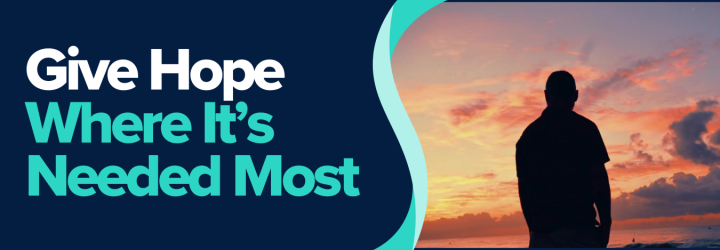
Beyond Addiction: The Real Opioid Crisis
The opioid crisis has dominated headlines, painting a bleak picture of the epidemic. While opioids have played a role in this crisis, the problem runs much deeper than the drugs themselves.
What is an overdose?
An overdose happens when a toxic amount of a drug, or a combination of drugs, overwhelms the body. People can overdose on a lot of things – like alcohol, over-the-counter medications, and prescription drugs.
Opioid overdoses happen when so much of this drug is consumed that the victim is no longer able to breathe. Oxygen levels in the blood decrease and eventually vital organs like the heart and brain stop.
Surviving an opioid overdose depends on oxygen. Individuals slowly stop breathing, which usually happens minutes to hours after the drug was used. Fortunately, that means there is time to intervene and save a life.
The Human Story
When talking about the opioid epidemic, it’s easy to get bogged down in statistics. But behind each number and news report, there is a human story. The opioid crisis has torn apart families, destroyed lives, and shattered communities. It has left a trail of devastation, touching individuals from all walks of life.
Each story of overdose reveals the urgent need for solutions. In the past, We have connected with real people who have been touched by addiction and overdose. You can read about their lived experiences here.
Social Influences
Poverty, unemployment, homelessness, and a lack of access to healthcare can all influence a person’s health, and can drive them to seek drugs.
Substance use and overdose prevention programs often focus on only one or two of these issues. However, interventions that address multiple issues are more likely to be successful in preventing drug use.
The negative impact of these factors can accumulate over a lifetime, and be passed down to future generations. According to the World Health Organization, about 75% of health inequalities are considered unfair and unavoidable. Addressing these underlying issues is vital in breaking the cycle of addiction.
Mental Health and Substance Use Disorder:
Mental health and substance use are intricately connected with each other. According to the Substance Abuse and Mental Health Services Administration, 19 million Americans live with both substance use and a mental health disorder. Many individuals struggling with mental health conditions turn to substance use as a means of self-medication or escape. On the flip side, substance use can also contribute to the development of mental health disorders.
People with mental health concerns have an increased risk of experiencing an overdose. More research needs to be done in this area to fully understand the relationship between mental health and substance use.. However, we do know it’s best to treat both disorders simultaneously.
Stigma and Criminalization
Stigma surrounding substance use and overdose keeps a lot of individuals from seeking the help they need. Addiction is seen as a moral failing, rather than a complex medical condition.
This mindset keeps people from speaking up and asking for help when they need it. It can also cause people to hide their drug use and consume substances alone – which is dangerous since no one is there to administer naloxone or call for help.
Criminalization further compounds the crisis, pushing individuals into the shadows and preventing them from receiving the care they need. Shifting public perception and promoting a compassionate, science-based approach can pave the way for recovery and healing.
The overdose crisis is a deeply rooted and complex issue that extends far beyond the realm of opioids alone. By addressing prevention, education, treatment, and support, we can strive toward a future where individuals find hope, healing, and recovery.


